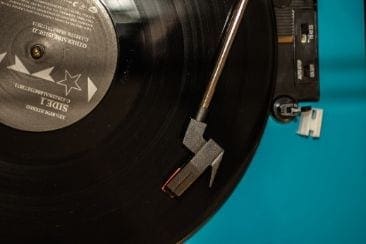Becoming a radio host is a sought-after profession for music lovers the world over. But how can you get your foot in the door and what skills do you need for the role?
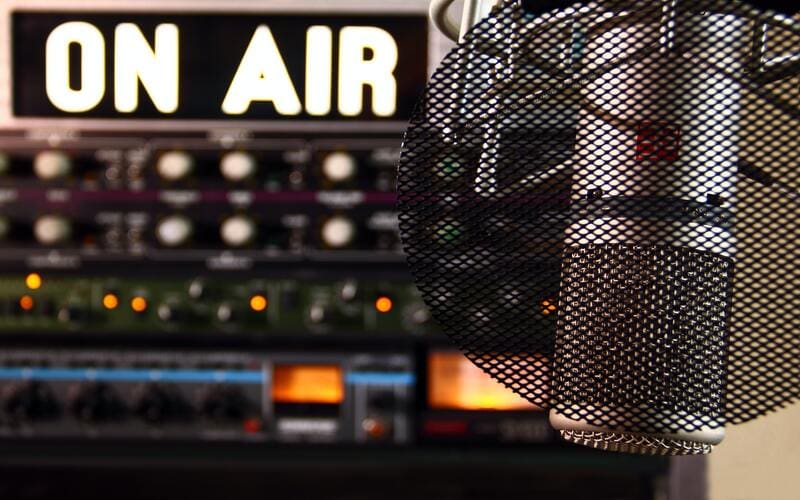
This article will be taking you through how to become a radio host from the top – what is a radio host? – all the way to how to apply and what a radio host’s salary looks like.
Read on, take it all in, and start honing your skills for that dream career!
What Is A Radio Host?
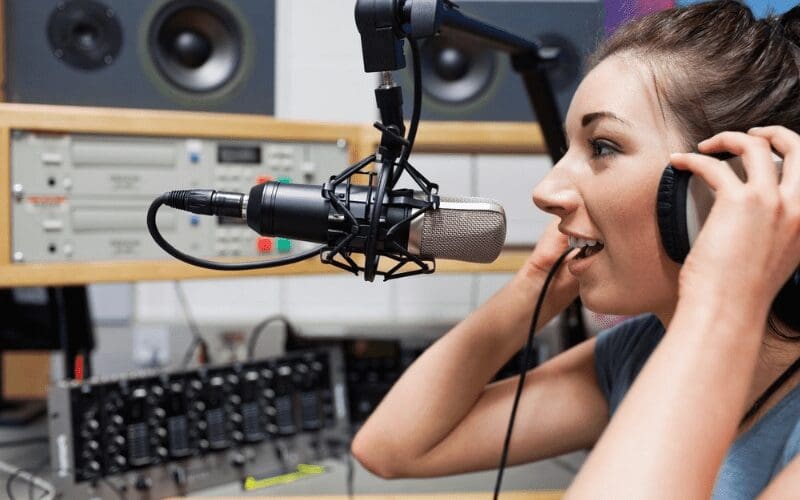
A radio host is the face or voice of radio and has an on-air position in radio broadcasting.
Essentially, as a radio show host, you’ve got to be happy chatting and willing to let your personality shine through. But, depending on the kind of radio station you’re working for, or if you’re working for yourself, what you’ll have to do day to day will differ.
If you’re hosting community radio shows, it is likely that you’ll be doing more than just presenting! It’s not uncommon to be in charge of mixing decks, and fading mics in and out. Using software to insert jingles and ad breaks. As well as organising interviews and preparing music mixes/weather reports/competitions.
Usually, playing music tracks is the responsibility of a disk jockey. But in some studios, there may not be one so it’ll be down to you!
In community radio, as well as in any online radio shows you might set up yourself, a solid understanding of production, basic sound engineering expertise, and a professional set-up (particularly high-quality mics) will be vital.
How To Become A Radio Host: The Required Skills
There are many powerful skills you need to learn when considering how to become a radio host. Let’s check them out!
Soft Skills For Radio Hosts

For aspiring radio hosts, one of the best ways to work towards becoming a presenter is by listening to other shows with an ear for how radio hosts guide the show and engage listeners.
How do they take calls from the audience? Banter with their co-host(s)? Keep talk shows on the topic while still ensuring a lively discussion. These are powerful skills to learn.
It’s not enough just to listen, however, it’s also important to be well-read. Listeners love hearing information they might not hear elsewhere. Whether it’s pop culture, music history facts, or a quirky news story.
Dropping in nuggets like these will bring listeners back for more and help define your radio personality. It’s especially important to be well-researched if your show has a niche – for example, a 90s rock show or a book club.
Preparation
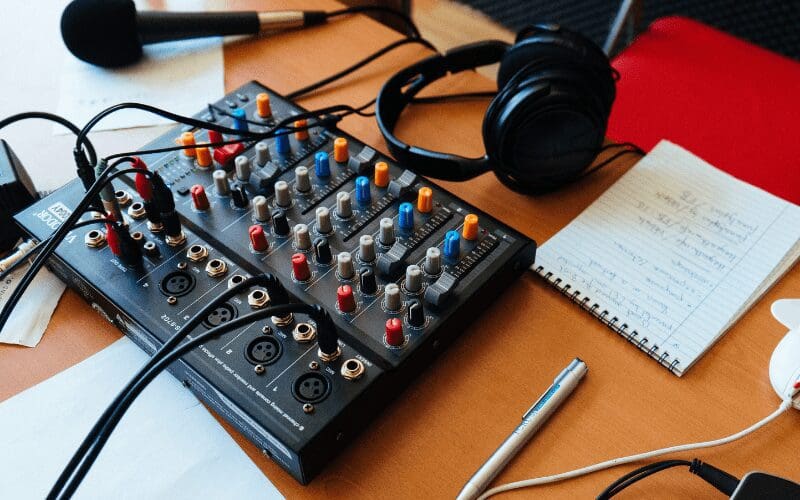
Being prepared and well-researched will not only impress listeners. But also any interviewers you might have, and allow you to open deep discussions from a place of mutual respect.
If you’re on a larger radio show where you are given scripts, you cannot afford to go on air without preparing. Read scripts beforehand. It’s easy to make mistakes in the moment, and that’s okay. But preparing in advance will mean you mitigate the likelihood of stumbling over a name or product description. Stay professional by being prepared!
Good radio hosts build networks through their shows. They connect with their fanbase and sustain contacts to follow up for interviews in the future. Their media personality should be warm and approachable.
Most will have active social media. From this, they might express gratitude to guests or listeners through shout-outs online. Social media allows you to know your audience and interact with that fanbase. Loyal listeners may be willing to provide content – i.e. ask/answer questions. Being friendly and approachable is key in radio.
Technical Skills For Radio Hosts
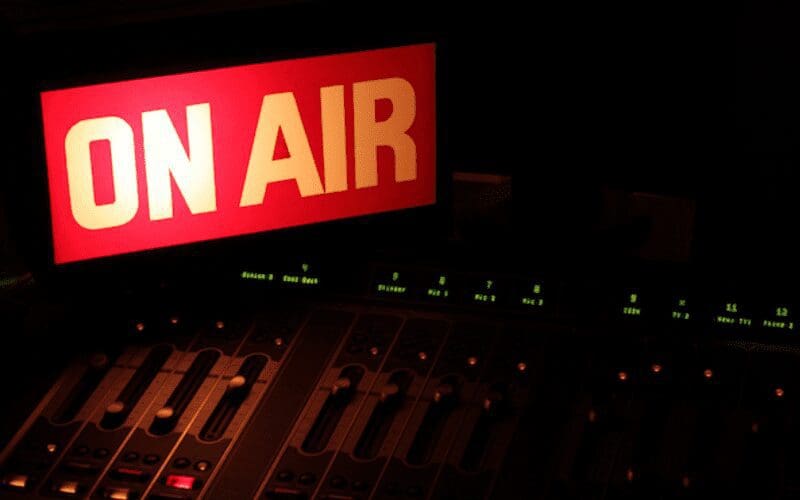
Most reputable radio stations will ask for experience and this can feel like a catch 22. How do I become a radio host without experience when jobs require experience on entry?
Community radio or university radio can be a great place to start!
As mentioned above, radio hosts on community shows will usually be required to assist or manage technical/production elements as well as presenting. If you’re getting into radio and feel like these skills aren’t relevant for a host – think again!
Production skills will never harm you as a radio host. In many cases, they will open doors and allow you to build networks with people all over the studio. Aspiring radio hosts should be curious to learn all about how radio is made and willing to help craft it.
Community radio and university radio shows are also willing to take on applicants with less experience and train them up. If you run a university society, think about applying to a community radio show for a monthly slot where you present on your society’s niche.
If you make a good impression, it’ll be a lot easier to reach out after university for work experience or a full-time position.
How To Become A Radio Host: The Different Routes
There are many different routes you can take when becoming a radio host. We explain all about these below to help make up your mind! Let’s take a look.
Going DIY

Starting your own radio show can be incredibly rewarding and remove some of the content constraints that radio stations might impose.
As big fans of DIY music-making at Мusic Gateway, we’ve got an article all about how you can do this and what equipment you will need.
For everything you need to know, check out The Best Internet Radio Stations & How To Start Your Own.
Education

You might be wondering, what degree do I need to be a radio host? Isn’t my bubbly personality enough?
While they’re not always required, some radio stations will expect an undergraduate degree in a related discipline.
Relevant radio host degrees include journalism communications, broadcasting, media, or English (particularly with work experience).
To begin with, you’ll have to send off a killer application and personal statement to the university of your choice for journalism, communications, or media BA. You’ll receive your acceptance letter after hitting all your predicted grades. Nice one!
Once you have been accepted by the university of your choice, sign up for your university radio station. Start one if it doesn’t exist (this will show initiative!) Also join your university film society to hone production skills, a public speaking society like debating, or a university newspaper team, perhaps as a columnist or editor.
Lastly, lots of radio stations including BBC1Extra and Capital FM, offer placements, apprenticeships, and internships. You’ll apply for these for some invaluable work experience. Check on radio station websites and job sites regularly for any opportunities!
For the best advice on Music Degrees, check out our articles on the Top Music Universities In The UK or Top Music Schools In The US.
If education isn’t for you, however, then you may just want to jump straight into employment. Wondering how to nail the radio station application? Read on!
Getting Hired By A Radio Station
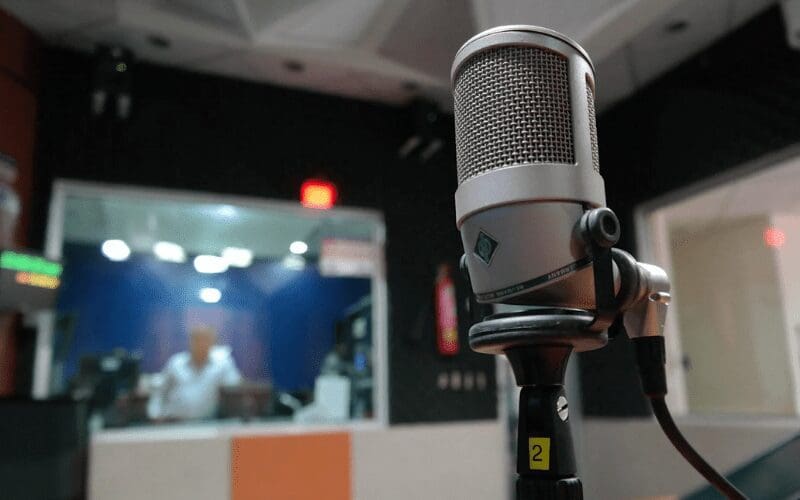
It’s also possible to apply directly to a station for job opportunities.
Undoubtedly, radio station jobs are competitive. But they’re one of the best ways to move up the ladder quickly in radio presenting and learn practical skills fast.
Here’s our key tips to help you get hired by a radio station!
Finding Radio Host Jobs
Most commonly, presenting jobs are advertised on the station’s website. Following radio stations that you aspire to work at on LinkedIn, Facebook or Twitter can ensure you’re ahead of the curve and don’t miss hiring season.
It’s also possible to apply via job sites, so setting up a job alert on Indeed or Guardian Jobs can also be worthwhile.
Keep your eyes peeled, it may be that cover work is available off-season and applying for that could get your foot in the door.
Work On That Resume
Experience is key. No one wants someone on air if they can’t handle the heat.
How have the societies or community radio shows you’ve worked at helped develop your skills? What have you learnt and how have you contributed?
Production skills are always highly valued; if you have some, flaunt them!
Airchecks
Airchecks are essential. Why? Because without them, employers won’t know how you sound on air and without knowing that, they can’t trust you.
Airchecks are essentially a demo or a live recording of you hosting a radio show, demonstrating all the skills your CV promises you have.
If you’ve had some experience or are about to, it’s worth recording any live presenting you do for future applications.
If not, record your own demo tape at home with crisp audio and sound effects/jingles where appropriate. Be sure that your style isn’t drastically different from the style of the radio station you’re applying for.
You can be sure other applicants are sending airchecks alongside their resume so you’re already at a disadvantage from the start if you leave yours out.
Media Is Your Friend
Radio hosting is about personality as well as communication. A strong social media presence can demonstrate both.
If you have your own DIY radio show, fans and friends can connect with you online. A link to your professional blog, YouTube page, or Instagram might be valuable as an indication of your personality and how you communicate with people.
These serve as an additional portfolio of work, creating an application that really stands out.
Radio Host Salary: How Much Do Radio Hosts Make?

It’s worth appreciating that many presenters are self-employed and paid per show. Smaller commercial radio shows could pay approximately £40 per show with this rising to £200 per show for larger commercial stations.
Radio host salaries for entry-level presenters is frequently below average UK earnings, as low as £20,000/year for a host with less than 12 months experience. You can expect this to rise to £25-28,000/year with 1-4 years of experience.
Also crucial are the stations that you’re applying for. Bigger stations like Heart, BBC, or Magic pay significantly more than community radio shows which are frequently manned (at least in part) by volunteers.
You could expect to earn significantly less than £28,000/year at a community radio show even with experience. In commercial radio, growing experience and a larger portfolio/fan base will be better reflected in the salary.
A presenter of a large daytime show at BBC1, for example, could expect to earn £52,000/year or more. Although community radio often just covers travel and living expenses, many presenters markedly prefer it because the work culture is more pleasant and friendly. Larger radio stations are considered by some presenters to be cutthroat and competitive.
Other key factors in salary are location and time slot. London and national stations will pay substantially more than local radio. Late night show hosts will tend to earn less than their drivetime or morning presenters, to reflect listenership at different times.
How To Become A Radio Host: Our Final Thoughts

The world of radio presenting is incredibly exciting and rewarding but demands a lot from aspiring radio hosts in terms of skills, experience, and attitude.
Hopefully, now you can better answer “how can I become a radio host” and are confident seeking volunteering jobs and applying to stations.
We’ve covered airchecks, key skills to demonstrate in resumes, which degrees help get a radio host job, and how you can go DIY. We’ve looked at how salaries depend on the size of the show, its location, the experience of applicants, and the show’s timeslot.
Now you know everything about what a radio host does and what you need to become one, how will you make your mark? Let us know and good luck in your career as a radio host!
Lastly, whilst, you’re here, why not check out some more articles on our blog? We recommend 8 Ways To Use Radio Tracking and The Best Music Podcasts Of 2020, we know you’ll love them! Be sure to share your thoughts in the comment section below!
Looking to get your music heard on the radio?
Then check out Music Gateway’s Radio Promotion service, where you can work with our experienced team to harness our powerful network of radio plugging contacts they can leverage, to get your music played on the best radio station for your brand.



